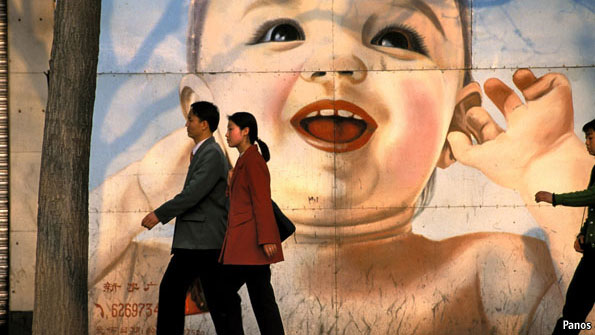
China's Unthinkable Population Problem
 In his post earlier today, Bryan Campen mentioned Kevin Kelly’s 02019 Unthinkables – a set of predictions he made in 1999 that were specifically meant to be outlandish or – eponymously – unthinkable.
In his post earlier today, Bryan Campen mentioned Kevin Kelly’s 02019 Unthinkables – a set of predictions he made in 1999 that were specifically meant to be outlandish or – eponymously – unthinkable.
With 12 years of perspective on the predictions, Kelly concludes his post by saying that he doesn’t think any of them will come true.
As it turns out, however, one of them isn’t too far off the mark:
The fertility rate in China drops below the replacement level, and nothing the government can do can get Chinese couples to have more than 1.5 kids each. For the first time China encourages immigration to keep its huge economy going.
The first part of this prediction has happened. On China’s latest census, The Economist reports:
The data imply that the total fertility rate, which is the number of children a woman of child-bearing age can expect to have, on average, during her lifetime, may now be just 1.4, far below the “replacement rate” of 2.1, which eventually leads to the population stabilising.
The Chinese government, despite calls by many academic demographers, continues to stand firm on the one-child policy enacted in 1980.
Impact Lab points out that this demographic trend will lead to China’s workforce – the country’s primary economic advantage – beginning to shrink within 5 years. In order to mitigate potential economic problems from this change, the government is trying, “to develop technology- and innovation-driven industries that need fewer workers.”
If those industries don’t develop quickly enough, the government may have to look to immigration to supply the labor China’s economy needs and the second part of Kelly’s prediction won’t seem so unthinkable, either.
Join our newsletter for the latest in long-term thinking
Subscribe